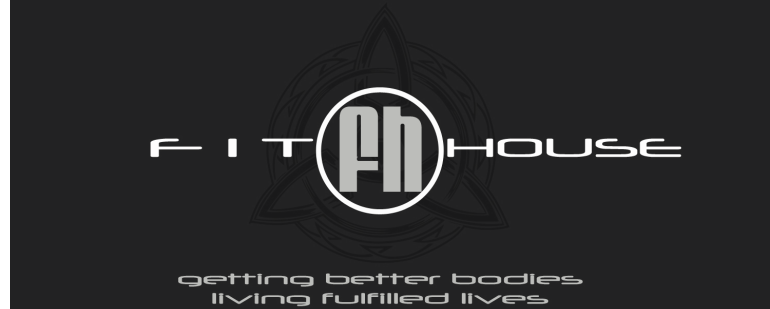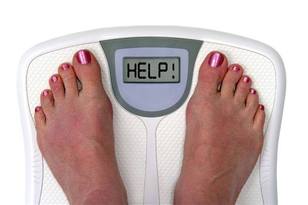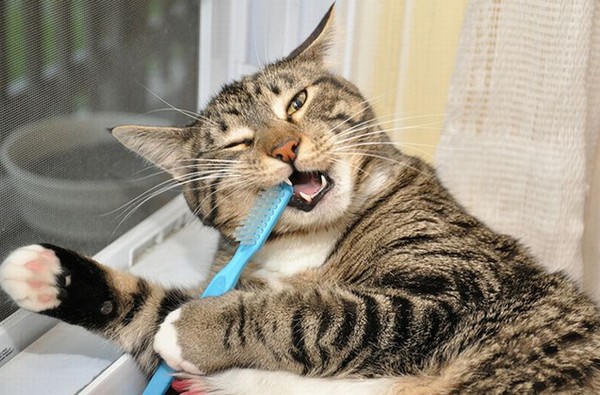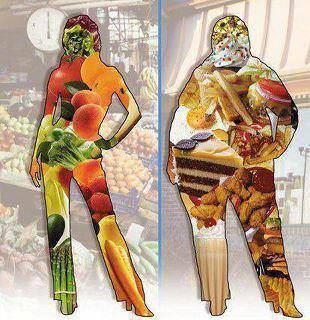One of the most important topics when it comes to exercise is how to recover from it. No matter how hard you train, you're only going to see great results if you do the things that enable your body to recover from the exercise you do. Let's take a look at how to make the best use of your time when you aren't bringin' it.
Recovering well is dependent on two variables: physiology and nutrition. In order to keep this as simple as possible, let's break your day down into time slots related to your workout. You'll see that by following a few simple rules you can greatly enhance your body's ability to recover quickly and get the most out of your exercise program.
Nutritional considerations
Your body uses different types of foods for different actions. For this reason, having an eating plan that supports your exercise program is the most important variable of your day. Before we get started, let's first look at the very basics of your diet. It consists of mainly three things: proteins, fats, and carbohydrates. Proteins and fats, in the simplest sense, make up our body tissue. Carbohydrates, which break down into sugars, are used to fuel our body. Since carbs aren't stored, we need to burn them off, meaning that how many of them we eat should be directly proportional to how much exercise we are doing.
Post-exercise
When it comes to eating for exercise, the most important time slot is immediately after your workout. Your body will only store up enough glycogen (blood sugar from carbohydrates) to get you through about an hour or so of hard exercise. At the end of a workout, our glycogen stores tend to be extinguished and need to be replenished. The quicker we can replenish these, the faster we will recover. This aside is to warn you that this is the toughest part to understand for most people. Since protein makes up muscle tissue and muscle tissue is what's broken down during exercise, it makes sense to think we need to consume protein after a workout. But this isn't how the process works. Protein is absorbed by the body very slowly, whereas sugar is utilized very rapidly. The longer it takes to get nutrients after a workout the slower our bodies are able to recover.
Because of this, sugar immediately after exercise is the body's preferred fuel source. In general, we don't need any sugar at all and are much better off eating complex carbohydrates that include fiber and make our body break them down into sugar. However, post-exercise, the quicker we can replenish our lost blood sugar the faster our body will begin to recover. So a small amount of sugar after exercise is essential for efficient recovery. We've known this for a long time, which is why most "sports" drinks tend to be sugary. So essentially what would be a bad nutritional strategy most of the time is a good strategy after exercise. During the 1990s science unlocked another key when studies showed that sugar with a small amount of protein—a 4:1 ratio being optimal—could enhance recovery around 25 percent over sugar alone, and up to 400 percent better than protein alone, when consumed within an hour after a workout. Again, fat and fiber are left out of this equation. While very important components of our diet, both fat and fiber interfere with rapid digestion, which is our goal after finishing a workout. This is the reason that our P90X® Peak Recovery Formula is designed the way it is.
During exercise
With the correct fueling strategy we won't need to eat during a normal workout lasting less than an hour and a half. However, if you find yourself low on nutrients and need to eat, you'll want to follow the same rules as you would after a workout. Again, glycogen replenishment is the goal, so we want to consume easy-to-digest carbohydrates with very little fiber and fat and little protein. It's also important to note that your body can only utilize about 250 or so calories in a given hour, so it almost never makes sense to take in more than 250–300 cals/hour of sports foods during exercise. Of course, you can burn far more than 250 calories in an hour. This is why what you eat over the rest of the day is so vital.
Pre-exercise
It's best to exercise on an empty stomach, but the realities of life can make this difficult. Try using a three-hour rule for meals, meaning that you should not work out for at least three hours after a full meal. If you need to eat within three hours of your workout, begin to follow the rules of eating during a workout and start to minimize the amount of fat and protein you eat, and certainly the amount of calories. If you need to eat an hour prior to a workout, a 4 to 1 carb/protein sports meal of less than 300 calories is best because your body will be able to utilize it during the workout. If you eat a full meal an hour prior to exercise, most of it will be undigested in your stomach during your workout and you won't be able to train nearly as effectively.
Between workouts. This is where your diet should reflect what you generally hear about nutrition. You want to eat nutrient-rich foods with plenty of fiber, good fatty acids, lots of protein, and very little, if any, sugar. As you can see from the above scenarios, you should eat a carb-heavy diet during and around the time you exercise. This means that for a balanced diet, you don't want a lot of carbs at other times. This is where your diet should consist of plenty of fruits, veggies, meats, nuts, and seeds.
Physiological considerations
This is a little simpler than the nutritional aspects because, well, it's pretty clear when you're exercising and when you're not. There are still a few tips that can help you recover, especially when we begin to look at the phases of exercise. Post-exercise. After you've finished a workout your body is warm and your muscles are tight because they've been contracting over and over. Stretching immediately after a workout is the best time to lengthen your muscles which, in turn, will reap you huge benefits on the recovery end.
During exercise
In general, you want to exercise as hard as your body allows. If you've properly fueled your body with nutrients and liquids, it should respond well. However, if you've slacked on these factors, you may bonk (run out of blood sugar) or become dehydrated. No matter how fastidious we are, these things will happen to us at some point. Learning to recognize the signals that your body is in trouble can help you decide when it's better to push on or when it's best to back off.
Both bonking and dehydration can feel similar. The first signal is generally a lack of energy and the inability to push a given weight or exercise as well as you normally can. If you have a heart rate monitor, the inability to achieve your normal high readings is a sign. And if your workout keeps getting worse, chances are it's due to one of the above-mentioned factors. Shaking and lightheadedness are also things to be aware of. If you can't control your form, you're done. Basically, once you've determined that your body is lacking nutrients, you're always better off ending a workout early. Causing further breakdown in an unfueled state will do a lot more harm than good and could set your program back up to two weeks, or longer if you get injured.
Pre-exercise
When your body is at rest it "stiffens" up, a condition called thixotropy. You have bodily fluids that lube your joints as you exercise. Easy moving warms your body temperature and makes these fluids more viscous. A thorough warmup includes joint manipulations and ballistic stretches that get your body ready for the rigors of exercise. A thoroughly warmed-up body can endure a lot more stress during a workout, meaning that you'll get more results from the same amount of effort.
Between workouts
There are all sorts of things that help your body recover better between workouts, but none of them is as important or as effective as sleep. When you sleep, your body's recovery hormones get to work overtime and learning to sleep better or making time to sleep (or taking naps) is just about the most effective way to ensure you recover well. The power of sleeping is so vital that five-time Tour de France winner Eddy Merckx once said, "The Tour is won in bed." Between workout phases. The most effective way to train your body is in phases. You work on something for a given amount of time and then you focus on something else. All of our fitness programs like Slim in 6&Reg; and P90X&Reg; work in phases that generally last from three to 12 weeks. The time of each phase should vary depending upon the time and intensity of the training involved. What never changes is that you should also have a rest or recovery phase as part of your plan.
We generally schedule serendipitous "recovery phases" around our social calendars. These are times when we give up trying to work out because we know we'll be too busy. Recognizing that having a recovery phase is an important part of an exercise program can help you get the most out of these periods. A recovery phase generally involves doing low-intensity exercise and avoiding intense work that causes a lot of muscle tissue breakdown. When we plan recovery phases ourselves, they often contain no exercise. While this works, it's better if we were to do some light exercise designed to enhance our body's natural ability to recover.
When we train hard we cause a chronic condition called cumulative microtrauma. For a variety of reasons it can't be avoided because it's caused by some of the natural byproducts of hard training, like lactic acid build-up and high-threshold muscle cell motor unit recruitment. Therefore, recovery cycles are designed so that you exercise in a way that doesn't let these things happen. You end up doing more easy aerobic work and stretching that oxygenates your blood and builds up capillaries, which has the effect of building your body's capacity to handle more intense training during the next round of your given program. A good recovery program will include things like easy aerobic work, yoga, simple resistance exercises, and lots of stretching.
By Steve Edwards
Recovering well is dependent on two variables: physiology and nutrition. In order to keep this as simple as possible, let's break your day down into time slots related to your workout. You'll see that by following a few simple rules you can greatly enhance your body's ability to recover quickly and get the most out of your exercise program.
Nutritional considerations
Your body uses different types of foods for different actions. For this reason, having an eating plan that supports your exercise program is the most important variable of your day. Before we get started, let's first look at the very basics of your diet. It consists of mainly three things: proteins, fats, and carbohydrates. Proteins and fats, in the simplest sense, make up our body tissue. Carbohydrates, which break down into sugars, are used to fuel our body. Since carbs aren't stored, we need to burn them off, meaning that how many of them we eat should be directly proportional to how much exercise we are doing.
Post-exercise
When it comes to eating for exercise, the most important time slot is immediately after your workout. Your body will only store up enough glycogen (blood sugar from carbohydrates) to get you through about an hour or so of hard exercise. At the end of a workout, our glycogen stores tend to be extinguished and need to be replenished. The quicker we can replenish these, the faster we will recover. This aside is to warn you that this is the toughest part to understand for most people. Since protein makes up muscle tissue and muscle tissue is what's broken down during exercise, it makes sense to think we need to consume protein after a workout. But this isn't how the process works. Protein is absorbed by the body very slowly, whereas sugar is utilized very rapidly. The longer it takes to get nutrients after a workout the slower our bodies are able to recover.
Because of this, sugar immediately after exercise is the body's preferred fuel source. In general, we don't need any sugar at all and are much better off eating complex carbohydrates that include fiber and make our body break them down into sugar. However, post-exercise, the quicker we can replenish our lost blood sugar the faster our body will begin to recover. So a small amount of sugar after exercise is essential for efficient recovery. We've known this for a long time, which is why most "sports" drinks tend to be sugary. So essentially what would be a bad nutritional strategy most of the time is a good strategy after exercise. During the 1990s science unlocked another key when studies showed that sugar with a small amount of protein—a 4:1 ratio being optimal—could enhance recovery around 25 percent over sugar alone, and up to 400 percent better than protein alone, when consumed within an hour after a workout. Again, fat and fiber are left out of this equation. While very important components of our diet, both fat and fiber interfere with rapid digestion, which is our goal after finishing a workout. This is the reason that our P90X® Peak Recovery Formula is designed the way it is.
During exercise
With the correct fueling strategy we won't need to eat during a normal workout lasting less than an hour and a half. However, if you find yourself low on nutrients and need to eat, you'll want to follow the same rules as you would after a workout. Again, glycogen replenishment is the goal, so we want to consume easy-to-digest carbohydrates with very little fiber and fat and little protein. It's also important to note that your body can only utilize about 250 or so calories in a given hour, so it almost never makes sense to take in more than 250–300 cals/hour of sports foods during exercise. Of course, you can burn far more than 250 calories in an hour. This is why what you eat over the rest of the day is so vital.
Pre-exercise
It's best to exercise on an empty stomach, but the realities of life can make this difficult. Try using a three-hour rule for meals, meaning that you should not work out for at least three hours after a full meal. If you need to eat within three hours of your workout, begin to follow the rules of eating during a workout and start to minimize the amount of fat and protein you eat, and certainly the amount of calories. If you need to eat an hour prior to a workout, a 4 to 1 carb/protein sports meal of less than 300 calories is best because your body will be able to utilize it during the workout. If you eat a full meal an hour prior to exercise, most of it will be undigested in your stomach during your workout and you won't be able to train nearly as effectively.
Between workouts. This is where your diet should reflect what you generally hear about nutrition. You want to eat nutrient-rich foods with plenty of fiber, good fatty acids, lots of protein, and very little, if any, sugar. As you can see from the above scenarios, you should eat a carb-heavy diet during and around the time you exercise. This means that for a balanced diet, you don't want a lot of carbs at other times. This is where your diet should consist of plenty of fruits, veggies, meats, nuts, and seeds.
Physiological considerations
This is a little simpler than the nutritional aspects because, well, it's pretty clear when you're exercising and when you're not. There are still a few tips that can help you recover, especially when we begin to look at the phases of exercise. Post-exercise. After you've finished a workout your body is warm and your muscles are tight because they've been contracting over and over. Stretching immediately after a workout is the best time to lengthen your muscles which, in turn, will reap you huge benefits on the recovery end.
During exercise
In general, you want to exercise as hard as your body allows. If you've properly fueled your body with nutrients and liquids, it should respond well. However, if you've slacked on these factors, you may bonk (run out of blood sugar) or become dehydrated. No matter how fastidious we are, these things will happen to us at some point. Learning to recognize the signals that your body is in trouble can help you decide when it's better to push on or when it's best to back off.
Both bonking and dehydration can feel similar. The first signal is generally a lack of energy and the inability to push a given weight or exercise as well as you normally can. If you have a heart rate monitor, the inability to achieve your normal high readings is a sign. And if your workout keeps getting worse, chances are it's due to one of the above-mentioned factors. Shaking and lightheadedness are also things to be aware of. If you can't control your form, you're done. Basically, once you've determined that your body is lacking nutrients, you're always better off ending a workout early. Causing further breakdown in an unfueled state will do a lot more harm than good and could set your program back up to two weeks, or longer if you get injured.
Pre-exercise
When your body is at rest it "stiffens" up, a condition called thixotropy. You have bodily fluids that lube your joints as you exercise. Easy moving warms your body temperature and makes these fluids more viscous. A thorough warmup includes joint manipulations and ballistic stretches that get your body ready for the rigors of exercise. A thoroughly warmed-up body can endure a lot more stress during a workout, meaning that you'll get more results from the same amount of effort.
Between workouts
There are all sorts of things that help your body recover better between workouts, but none of them is as important or as effective as sleep. When you sleep, your body's recovery hormones get to work overtime and learning to sleep better or making time to sleep (or taking naps) is just about the most effective way to ensure you recover well. The power of sleeping is so vital that five-time Tour de France winner Eddy Merckx once said, "The Tour is won in bed." Between workout phases. The most effective way to train your body is in phases. You work on something for a given amount of time and then you focus on something else. All of our fitness programs like Slim in 6&Reg; and P90X&Reg; work in phases that generally last from three to 12 weeks. The time of each phase should vary depending upon the time and intensity of the training involved. What never changes is that you should also have a rest or recovery phase as part of your plan.
We generally schedule serendipitous "recovery phases" around our social calendars. These are times when we give up trying to work out because we know we'll be too busy. Recognizing that having a recovery phase is an important part of an exercise program can help you get the most out of these periods. A recovery phase generally involves doing low-intensity exercise and avoiding intense work that causes a lot of muscle tissue breakdown. When we plan recovery phases ourselves, they often contain no exercise. While this works, it's better if we were to do some light exercise designed to enhance our body's natural ability to recover.
When we train hard we cause a chronic condition called cumulative microtrauma. For a variety of reasons it can't be avoided because it's caused by some of the natural byproducts of hard training, like lactic acid build-up and high-threshold muscle cell motor unit recruitment. Therefore, recovery cycles are designed so that you exercise in a way that doesn't let these things happen. You end up doing more easy aerobic work and stretching that oxygenates your blood and builds up capillaries, which has the effect of building your body's capacity to handle more intense training during the next round of your given program. A good recovery program will include things like easy aerobic work, yoga, simple resistance exercises, and lots of stretching.
By Steve Edwards






 RSS Feed
RSS Feed
